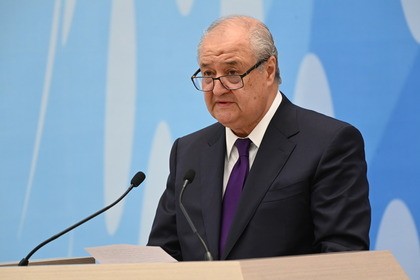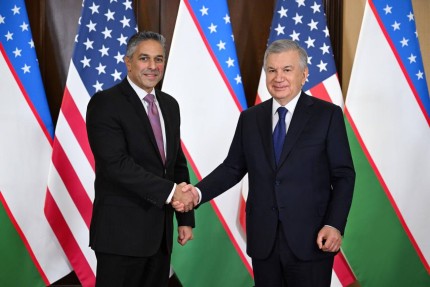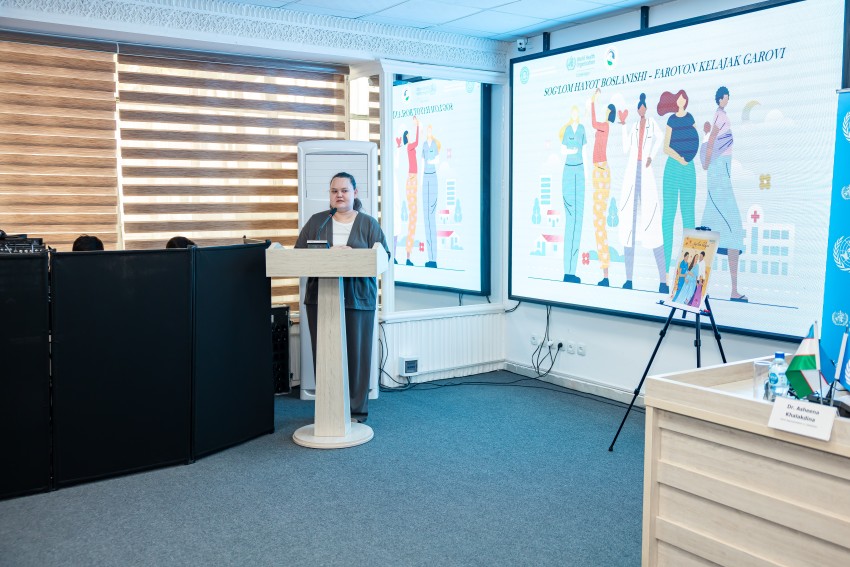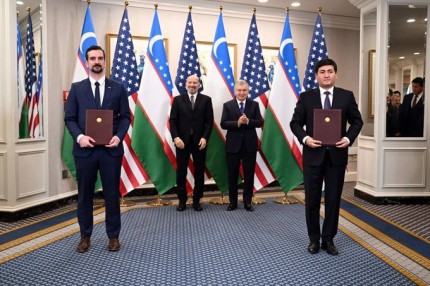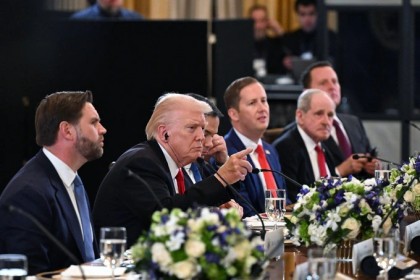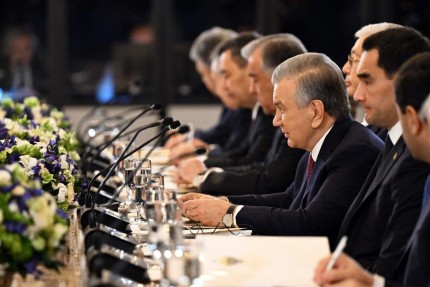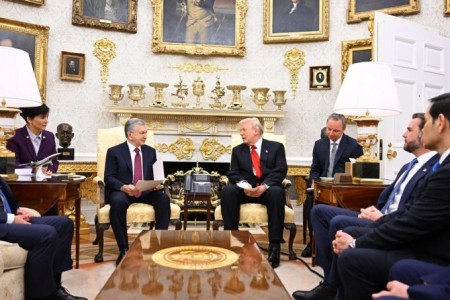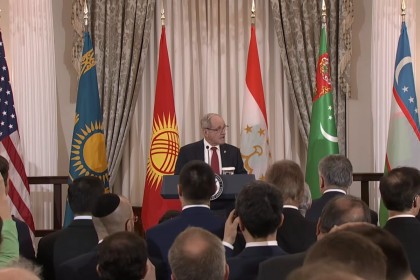President’s Envoy for Foreign Policy Course, Abdulaziz Kamilov authored an article entitled: New Central Asia in Uzbekistan’s Foreign Policy in Xalq So’zi (People’s Word) newspaper.
Our disunity had been making us weaker
The sixth Central Asia Summit in Astana last week launched “a new phase of regional cooperation in this unique format,” Abdulaziz Kamilov underscored at the beginning of the article.
“For the first time, the countries agreed on a common vision for advancing the regional cooperation - the Central Asia - 2040 Concept, which confirmed the commitment of the states to give an irreversible and progressive nature to the process of regional cooperation,” the article says.
The former Foreign Minister recalled how, since the first Summit in 2018, the countries “had been changing the modern face of the Central Asia together, transforming the region into a space of peace and harmony, friendship and good neighborliness, mutual trust and cooperation.”
“Just seven years ago, our borders were almost completely closed. We witnessed conflicts and minefields in border areas, transport blockades, high trade barriers. Endless disputes over the use of water resources, access to pastures and water management facilities threatened to escalate into open confrontation," the special representative of the president listed.
"Some forces in the region had been provoking rivalry and competition, generating mistrust and speculating on our common historical heritage. Our disunity made us weaker, deprived us of prospects for consolidation, preventing the region from unlocking its potential in the name of common interests," he underscored.
The deepening global crisis of confidence and the escalation of armed conflicts also began to have a negative impact on the stability and sustainable development of the region, he added.
"In this regard, the understanding grew that the well-being of Uzbekistan, like other countries and peoples of Central Asia, depended on common efforts to strengthen cooperation, readiness to jointly promote the interests of ensuring security and sustainable development of the region," he emphasized.
Abdulaziz Kamilov underscored that it was the new President of Uzbekistan Shavkat Mirziyoyev who became "the leader who acutely felt the maturing public demand for radical changes, solutions to accumulated problems, and a fundamental breakdown of outdated approaches to building relationships with neighbors."
In the Foreign Policy Doctrine that he formed, the Central Asian region is defined as the priority area of Uzbekistan's foreign policy, the former head of the Ministry of Foreign Affairs recalled.
"The goal of achieving "zero problems with neighbors" is at the forefront. The conceptual basis of regional policy course is the principles of inadmissibility of strengthening one's own security at the expense of the security of other states, openness, pragmatism and constructivism, proactive dialogue based on equality, mutual respect and consideration of interests," the special representative of Uzbekistan underscored.
"Uzbekistan objectively bears special responsibility for the future of Central Asia. And this is dictated by the fact that we share common borders with all countries in the region. More than half of the population of Central Asia, large communities of all the peoples of the region live here. Almost all vital issues of Uzbekistan's development - from water to transport corridors, regional security and trade depend on good-neighborly and predictable relations with neighboring countries." - he emphasized.
Borders have become "bridges of friendship and good neighborliness"
"Changes in Tashkent's approaches to building political, diplomatic, economic, cultural and humanitarian interaction in Central Asia have created conditions not only for a radical improvement in interstate relations between Uzbekistan and its neighbors, but also laid the foundations for further consolidation and integration of Central Asia in a new format," Abdulaziz Kamilov continued.
"Literally in a matter of years," the situation in Central Asia has changed dramatically. "First of all, we managed to overcome the existing rather complex and sensitive problems on border issues."
"Uzbekistan has fully completed the legal registration of the border with Kazakhstan, delimited the border with Turkmenistan, Tajikistan and Kyrgyzstan. Dozens of checkpoints on the border have resumed their activities, significantly facilitating the movement of people between our countries,” he underscored.
“Today, the borders between Uzbekistan and the countries of Central Asia can rightfully be called bridges of friendship and good neighborliness. This is confirmed by the procedure for crossing the Uzbek-Kyrgyz border with the presentation of an internal document - a general civil ID card, which has been in effect since September 1, 2023. A similar project is being discussed with the Kazakh authorities,” he emphasized.
At the recent Astana Summit, Shavkat Mirziyoyev proposed mutual recognition of national ID cards in Central Asia and the development of mass tourism products based on the principle of “One Tour - Whole Region, he recalled.
“While, we see significant progress in marking the Tajik-Kyrgyz border. To date, more than 90% of the total length of the border has been agreed upon,” the author noted.
All this suggests that, “despite all the differences, the solution of acute, sensitive and complex problems is quite possible if we are guided by the principles of mutual trust and the willingness of the parties to mutually acceptable compromises taking into account each other’s interests,” he emphasized.
“A complete reboot has brought benefits to everyone”
“A complete reboot in our vast region has brought benefits to everyone. Thanks to the high level of consolidation, progress is noticeable in the region’s economy. The level of cooperation and intraregional trade has increased significantly, and ties with foreign partners have expanded,” writes Abdulaziz Kamilov.
“Central Asia has become a more interconnected region, capable of jointly realizing emerging opportunities.” Uzbekistan, Kyrgyzstan, and Tajikistan have created investment funds to finance large joint projects. At the initiative of Uzbekistan, work has begun with all countries in the region to create border trade zones, he noted.
“In line with general changes, great progress is being observed in the area related to water, water-energy, and environmental issues,” the special representative of the president emphasized.
“In the new geopolitical conditions, Central Asia is once again regaining the role that the region played back in the days of the Great Silk Road, serving as a connecting bridge between East and West, North and South, and a crossroads of various economic interests. The region is becoming an important element of transport and communication routes within the Trans-Caspian corridor, the North-South route, as well as new projects linking Central and South Asia, diversifying corridors from China to Europe,” he noted.
Cultural and humanitarian exchange has noticeably intensified. Intraregional tourism has reached about 80% of all tourist destinations preferred by citizens of Central Asian countries, the author noted.
“Central Asia has become an independent player on the world stage”
One of the key components of Uzbekistan’s strategy to transform Central Asia into a space of stability and sustainable development is achieving long-term peace in Afghanistan, Abdulaziz Kamilov further noted.
“An essential feature of Tashkent’s current Afghan policy course is that Uzbekistan views Afghanistan as an organic, integral part of all of Central Asia,” he emphasized.
“The new Central Asia has become a region of attraction for world powers and leading states,” the presidential special representative continued. The region actively interacts within the framework of more than 10 “Central Asia Plus” formats with almost 40 countries and two regional organizations.
“Central Asia has essentially already become an independent player on the world stage, enhancing its subjectivity. Moreover, our countries actively act from common or similar positions in building relationships with external partners,” the author noted.
“The unity of views at the Astana summit was also manifested in the desire to form a Central Asian identity as an important condition for affirming common responsibility and solidarity in enhancing the well-being and prosperity of Central Asia,” he added.
Goals for the new cycle of consultations of the heads of state of the “Central Asian Five”
In 2025, the Central Asia Summit will be hosted by Uzbekistan. Abdulaziz Kamilov outlined a number of tasks to promote regional cooperation.
First, this is the further deepening of the political dialogue. "It is necessary to closely coordinate efforts in matters of ensuring security, which are becoming even more relevant in the context of the crisis in the global economy and the tough confrontation between various centers of power."
Secondly, the priority is "implementing a strategic breakthrough in the economic direction." "We advocate the formation of our region as one of the world centers of economic growth and investment activity. The author quoted the President of Uzbekistan: "Our strategic goal should be the formation of a Single Regional Market in the long term."
Thirdly, this is the promotion of joint industrial cooperation projects.
Fourthly, the implementation of transport and communications potential.
Fifthly, cooperation in the energy sector. "There is an objective need to develop joint approaches to the formation of a common energy market in Central Asia."
Sixth, adaptation to climate change and food security. It is important to "strengthen cooperation in the field of agro-industrial cooperation to create high-yielding varieties of agricultural crops, search for more rational irrigation methods, introduce water-saving technologies and innovations in the agricultural sector."
Seventh, strengthening cultural and humanitarian ties. "It is important to continue our efforts to expand cooperation in the fields of culture, science, education and tourism. The growing cohesion of the Central Asian countries provides unprecedented opportunities to turn the region into one of the most attractive tourist destinations in the world."
In conclusion of the article, Abdulaziz Kamilov emphasized that "the process of regional rapprochement in Central Asia, launched in 2017 as a result of large-scale reforms in Uzbekistan and Tashkent's innovative policy of good-neighborliness and cooperation, has today acquired a sustainable and irreversible character."
He noted the “political will, unprecedented pragmatism, strengthening of confidence-building measures and flexibility of diplomacy [of the President of Uzbekistan], readiness for reasonable compromises to resolve key interstate and regional problems,” which ensured “a strategic shift in Central Asia from disputes and disagreements to mutual understanding and cooperation.”

